|
|
|
|
|
|
|
|
No Arctic-science events are announced today.
|
Media
Russia Building Gigantic Railroad Artery to Connect Arctic Regions. An additional 686km of railroad will soon link Russia's Arctic regions. The railway will provide logistics for the Northern Sea Route to boost commerce between Europe and Asia and Russian energy projects in the Arctic.The project, named the Northern Latitudinal Railway, is planned to be completed by 2023, authorities say. It requires the building of 350km of track and modernizing the existing infrastructure. The volume of traffic on the route is estimated at 23.9 million tons a year. RT
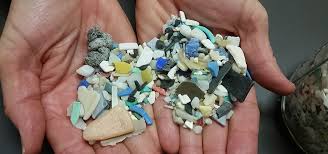 Arctic Cruise Operators Target Plastic Use. Arctic Cruise Operators Target Plastic Use. This summer, the Association of Arctic Expedition Cruise Operators (AECO) is working with cruise operators to identify how the expedition cruise industry can drastically reduce the use of disposable plastics on ships. AECO will also continue to engage thousands of cruise passengers in beach cleanups in the Arctic. Environmental agent Sarah Auffret was hired by AECO in May to lead the association's efforts to combat marine plastic pollution. She has visited 16 expedition cruise vessels sailing in Svalbard to analyze and later share best practices on reducing plastic consumption. Maritime Executive
Vyacheslav Ruksha Will Lead The Newly Established Northern Sea Route Directorate. Rosatom, Russia's nuclear corporation, appoints its most experienced Arctic strongman to be in charge of the Northern Sea Route between Asia and Europe. Vyacheslav Ruksha comes from the position as Director General of Atomflot, the country's fleet of civilian nuclear powered icebreakers based in Murmansk. The appointment was announced on Tuesday. Vyacheslav Rukhsa has a background as Director of the Murmansk Shipping company from the days in the 1990s when the shipping company was in charge of operation the nuclear icebreakers. The Barents Observer
Inuit Researchers Are on the Lookout for Migrating Microsplastics. There isn't an ocean beach in the world that has been tested and not found to contain tiny plastic fibers, beads or other plastic fragments of the industrial world. The Arctic beaches of Kugluktuk, Nunavut, nearly 2,000 km directly north of Calgary, are no exception. Researchers are now trying new methods to understand the source and scope of the problem. The Narwhal
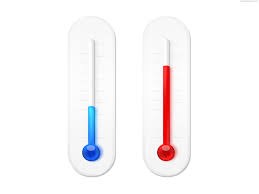 Warming Arctic Could be Behind Heat Wave Sweeping Northern Hemisphere. Warming Arctic Could be Behind Heat Wave Sweeping Northern Hemisphere. This heat wave across much of the northern hemisphere could continue for weeks, and possibly even months. And accelerated warming in the Arctic compared to the rest of the planet could be a key contributor. The heat waves have killed dozens in Japan and Korea, triggered wildfires in California and Sweden, and led to prolonged dry weather in the UK and across northern Europe, raising temperatures beyond 30°C in Scandinavian sectors of the Arctic Circle. In Greece, the deadliest wildfires in more than a decade have claimed at least 74 lives. New Scientist
|
|
Future Events
Seeking Comment: Principles for Conducting Research in the Arctic, July 31, 2018 (Webinar). The Interagency Arctic Research Policy Committee (IARPC) is seeking comment from the public on the draft newly revised Principles for Conducting Research in the Arctic. The Principles are directed at federally-funded researchers, though they may be useful to academic, state, local, and tribal researchers in the Arctic. Attend our listening session on July 31 at 11 AM Alaska / 3 PM Eastern to learn more and submit your comments: here.
More than 750 participants generally register and
participate in each Congress, and more than 400 scientific papers or posters are usually presented.
UArctic Congress 2018, September 3-7, 2018 (Oulu and Helsinki, Finland). The UArctic Congress 2018 will bring together key UArctic meetings and a science conference into one single gathering, including business meetings of the Council of UArctic, Rectors' Forum, Student Forum, and Thematic Networks & UArctic Institutes Leadership Team. The Congress is an integral part of the Finland's Arctic Council chairmanship program, and open to the public. The event will highlight the themes and priorities of the Finnish chairmanship, including the goals of the United Nations' 2030 Agenda for Sustainable Development, and the Paris Agreement under the UN Framework Convention on Climate Change.
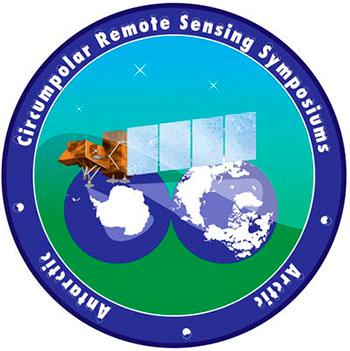
Scientific Exploration of the Arctic and North Pacific (SEA-NorP), September 25-27, 2018 (Mt. Hood, Oregon USA). This workshop will include discussion of hypotheses that can be tested by scientific drilling in the region, the technology necessary to achieve those goals, ideal sites for drilling based on existing data, and where additional site survey data is needed. The goal of the workshop organizers is that multiple proposals will be initiated at the workshop, both for full cruise legs and for shorter, targeted expeditions around the following themes: ocean gateways, geohazards, volatile cycling, ice histories at transition zones, biosphere and climate.
** New this week ** Polar Law Symposium (11th annual), October 2-4, 2018 (Tromsø, Norway). This symposium brings together established scholars and post-doctoral and doctoral researchers from all across the world to share research in the fields of polar law and policy. Leading experts are invited to give keynote lectures. A history of the symposium is here, news about it is here, and registration is here.
The second Arctic Biodiversity Congress is hosted by the Conservation of Arctic Flora and Fauna (CAFF), the biodiversity working group of the Arctic Council, and the Ministry of the Environment, Finland. The second Arctic Biodiversity Congress will build on the success of the first Congress, held in 2014 in Trondheim, Norway, and will bring together scientists, policymakers government officials, Indigenous representatives, Traditional Knowledge holders, industry, non-governmental organizations, and others to promote the conservation and sustainable use of Arctic biodiversity.
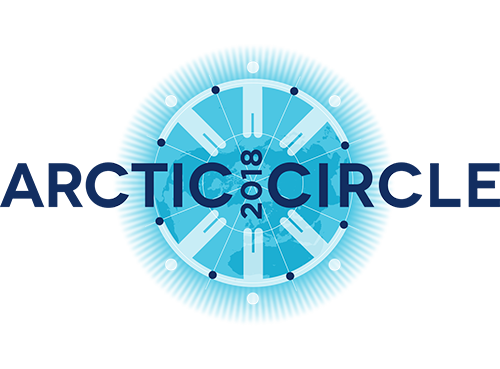 Arctic Circle Assembly, October 2018 (Reykjavik, Iceland). The annual Arctic Circle Assembly is the largest annual international gathering on the Arctic, attended by more than 2000 participants from 60 countries. It is attended by heads of states and governments, ministers, members of parliaments, officials, experts, scientists, entrepreneurs, business leaders, indigenous representatives, environmentalists, students, activists and others from the growing international community of partners and participants interested in the future of the Arctic. Arctic Circle Assembly, October 2018 (Reykjavik, Iceland). The annual Arctic Circle Assembly is the largest annual international gathering on the Arctic, attended by more than 2000 participants from 60 countries. It is attended by heads of states and governments, ministers, members of parliaments, officials, experts, scientists, entrepreneurs, business leaders, indigenous representatives, environmentalists, students, activists and others from the growing international community of partners and participants interested in the future of the Arctic.
Arctic Science Forum Associated with the 2nd Arctic Science Ministerial, October 25, 2018 (Berlin, Germany and via webcast). How vulnerable and how resilient are nature and the people of the Arctic region? How well do we understand the regional and global dynamics which are driving change in the Arctic? What impact will change in the Arctic have on us? These and other questions are the focus of this two-day conference. It will take interdisciplinary research in the Arctic to gain an understanding of past and future processes - a complex and cost-intensive venture. This makes an international network of Arctic research so important for delivering better results. Cooperation in research, the exchange of data, collaborative observation and monitoring schemes - international cooperation is imperative in research on the Arctic. Only the Science Forum on October 25th will be webcast.
American Geophysical Union Fall meeting, December 10-14, 2018 (Washington, DC USA). The AGU 2018 Fall Meeting will mark another dynamic year of discovery in Earth and space science, serve as the advent of AGU's Centennial year, and provide a special opportunity to share our science with world leaders in Washington, D.C. As the largest Earth and space science gathering in the world, the Fall Meeting places you in the center of a global community of scientists drawn from myriad fields of study whose work protects the health and welfare of people worldwide, spurs innovation, and informs decisions that are critical to the sustainability of the Earth.
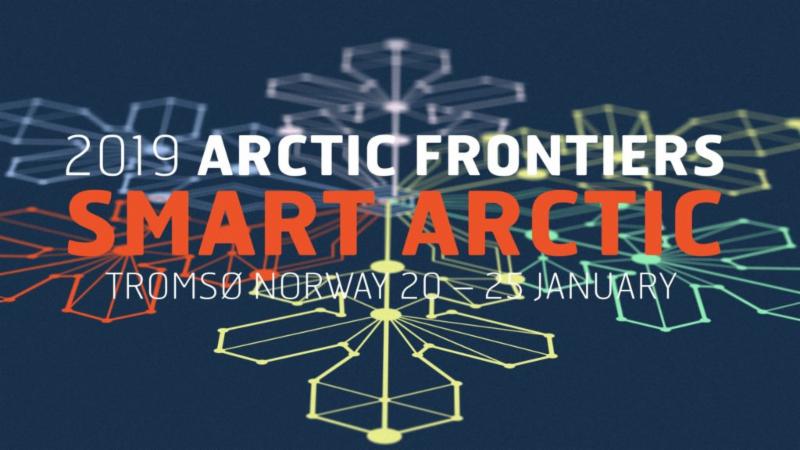 started out in 2006 assembling the first global scientific conference on economic, societal and environmental sustainable growth in the north. In January 2019, the hosts will arrange the 13th conference with the theme "Smart Arctic". The conference has a pan arctic perspective and builds new partnerships across nations, generations and ethnic groups. Arctic Frontiers provides a forum for dialogue and communication between science, government and industry in the Arctic. In 2019, the Arctic Frontiers plenary program will have five main sessions with the following tentative working titles: State of the Arctic, Blue Growth, Smart Solutions, Bridging the gap and Arctic business prospects. Following the plenary, we will organize an abstract driven science program addressing Plastics in the Ocean, the Future of Governance and Handling Vulnerability in Arctic Ecosystems, State of the Arctic and A Smart Arctic Future.
|
|

  
4350 N. Fairfax Drive, Suite 510
Arlington, VA 22203, USA
External links in this publication, and on the USARC's World Wide Web site ( www.arctic.gov) do not constitute endorsement by the US Arctic Research Commission of external Web sites or the information, products or services contained therein. For other than authorized activities, the USARC does not exercise any editorial control over the information you may find at these locations. These links are provided consistent with the stated purpose of this newsletter and the USARC Web site.
|
|
|
|
|
|
|
|
|
 Arctic Cruise Operators Target Plastic Use. This summer, the Association of Arctic Expedition Cruise Operators (AECO) is working with cruise operators to identify how the expedition cruise industry can drastically reduce the use of disposable plastics on ships. AECO will also continue to engage thousands of cruise passengers in beach cleanups in the Arctic. Environmental agent Sarah Auffret was hired by AECO in May to lead the association's efforts to combat marine plastic pollution. She has visited 16 expedition cruise vessels sailing in Svalbard to analyze and later share best practices on reducing plastic consumption. Maritime Executive
Arctic Cruise Operators Target Plastic Use. This summer, the Association of Arctic Expedition Cruise Operators (AECO) is working with cruise operators to identify how the expedition cruise industry can drastically reduce the use of disposable plastics on ships. AECO will also continue to engage thousands of cruise passengers in beach cleanups in the Arctic. Environmental agent Sarah Auffret was hired by AECO in May to lead the association's efforts to combat marine plastic pollution. She has visited 16 expedition cruise vessels sailing in Svalbard to analyze and later share best practices on reducing plastic consumption. Maritime Executive Warming Arctic Could be Behind Heat Wave Sweeping Northern Hemisphere. This heat wave across much of the northern hemisphere could continue for weeks, and possibly even months. And accelerated warming in the Arctic compared to the rest of the planet could be a key contributor. The heat waves have killed dozens in Japan and Korea, triggered wildfires in California and Sweden, and led to prolonged dry weather in the UK and across northern Europe, raising temperatures beyond 30°C in Scandinavian sectors of the Arctic Circle. In Greece, the deadliest wildfires in more than a decade have claimed at least 74 lives. New Scientist
Warming Arctic Could be Behind Heat Wave Sweeping Northern Hemisphere. This heat wave across much of the northern hemisphere could continue for weeks, and possibly even months. And accelerated warming in the Arctic compared to the rest of the planet could be a key contributor. The heat waves have killed dozens in Japan and Korea, triggered wildfires in California and Sweden, and led to prolonged dry weather in the UK and across northern Europe, raising temperatures beyond 30°C in Scandinavian sectors of the Arctic Circle. In Greece, the deadliest wildfires in more than a decade have claimed at least 74 lives. New Scientist
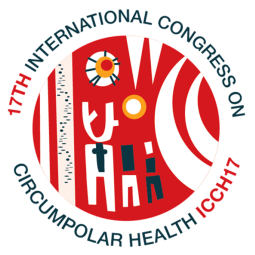 year in different locations in the circumpolar area and represent the largest scientific meetings worldwide on circumpolar health. The ICCH congresses serve as the primary source of information exchange and scholarly communication in issues relating to circumpolar health.
year in different locations in the circumpolar area and represent the largest scientific meetings worldwide on circumpolar health. The ICCH congresses serve as the primary source of information exchange and scholarly communication in issues relating to circumpolar health. 


